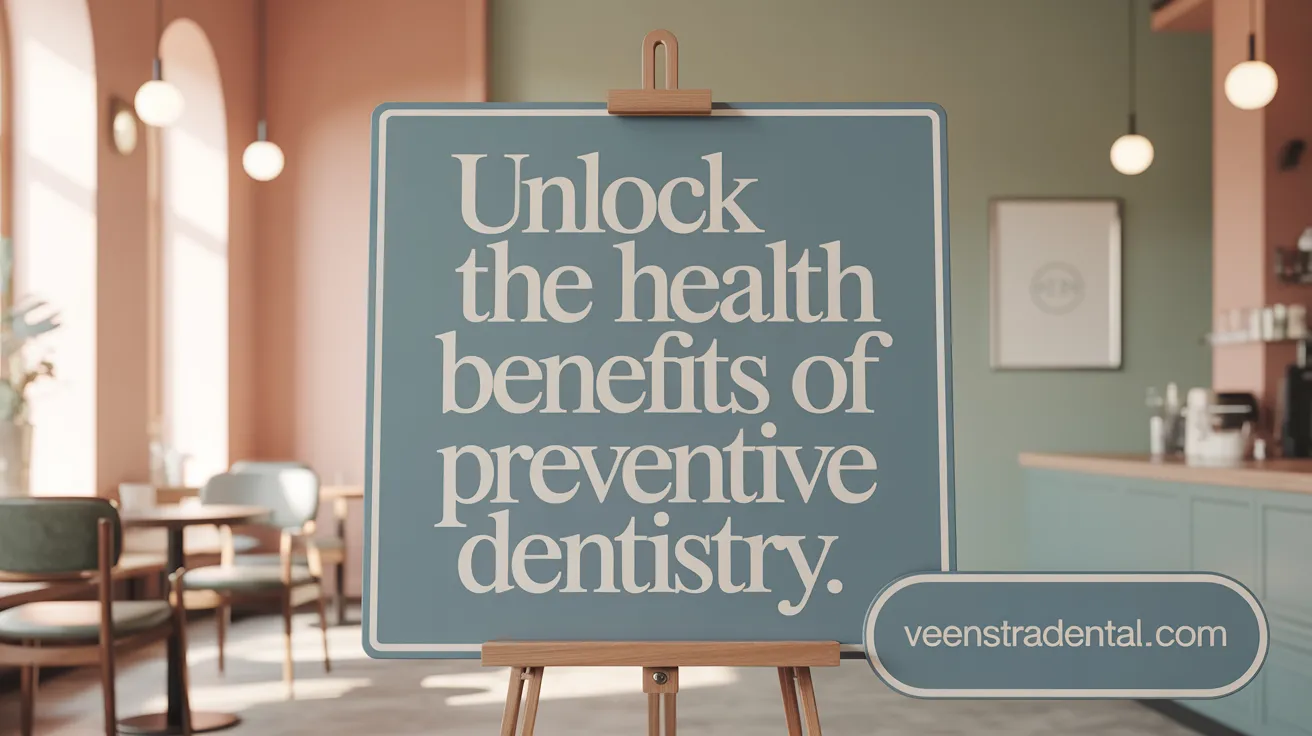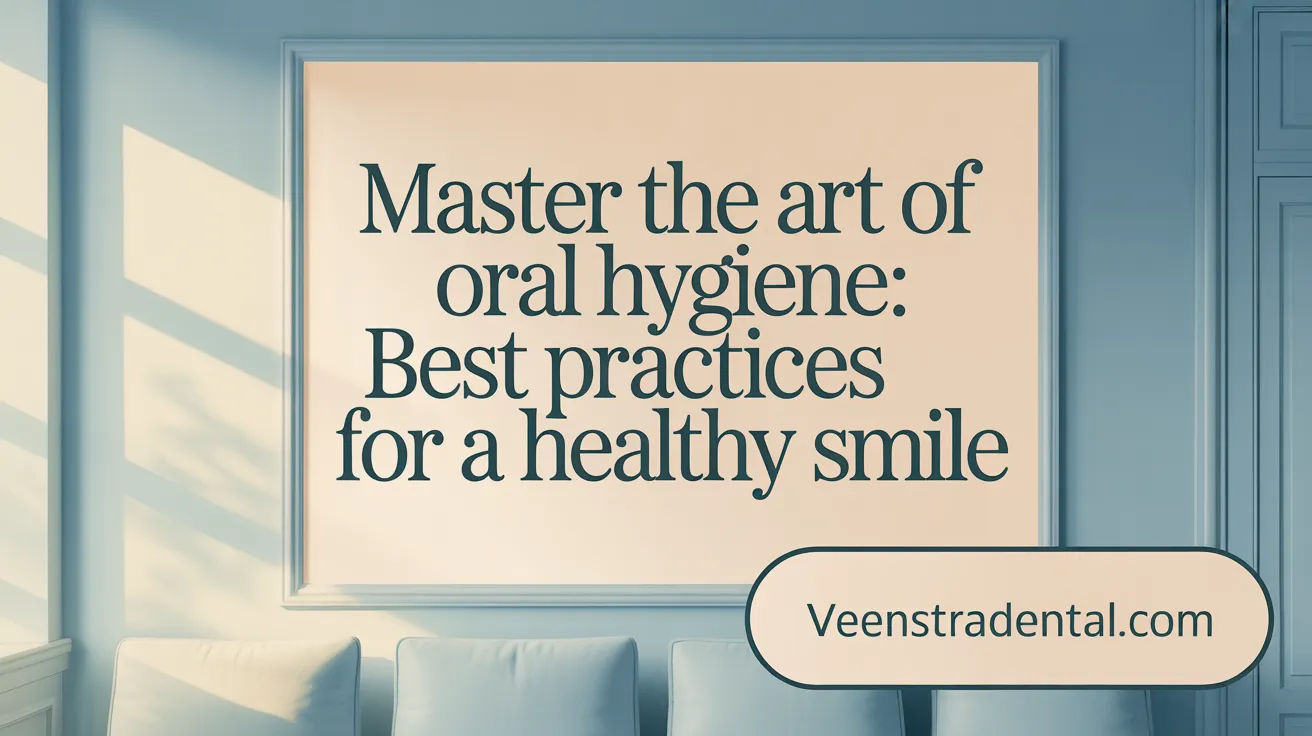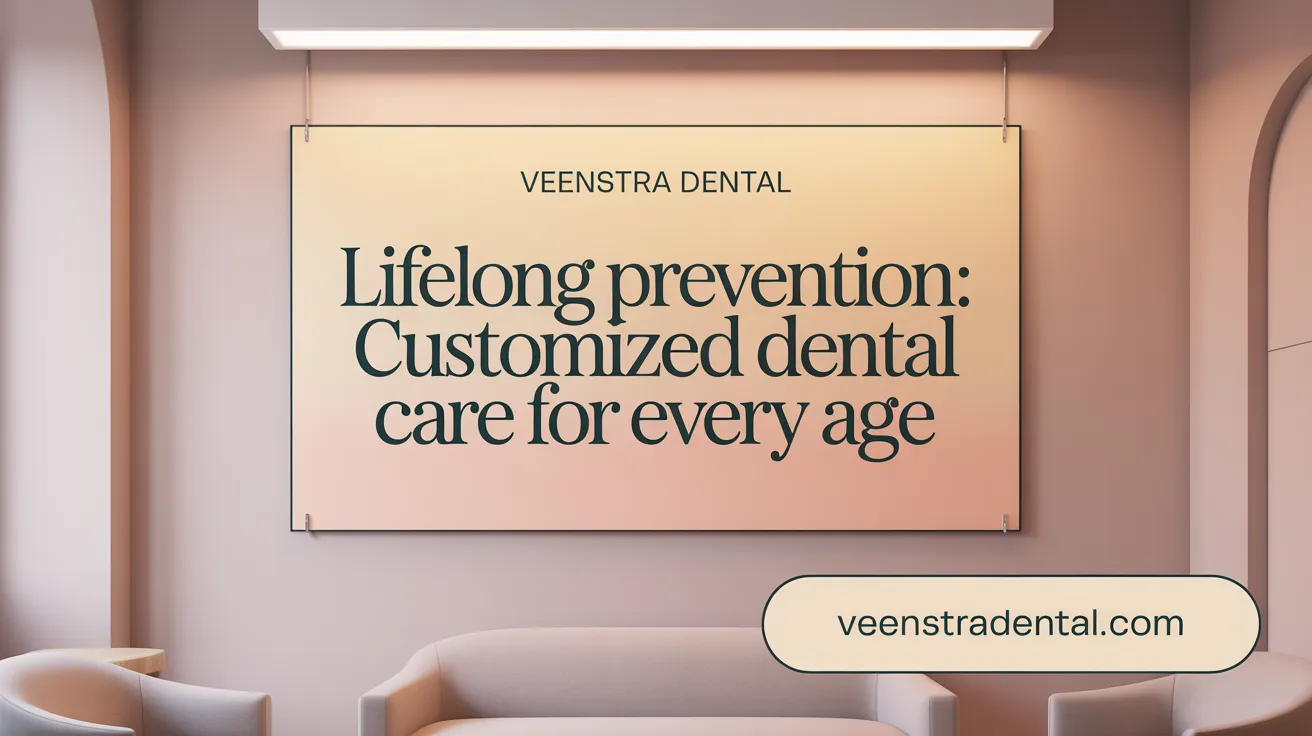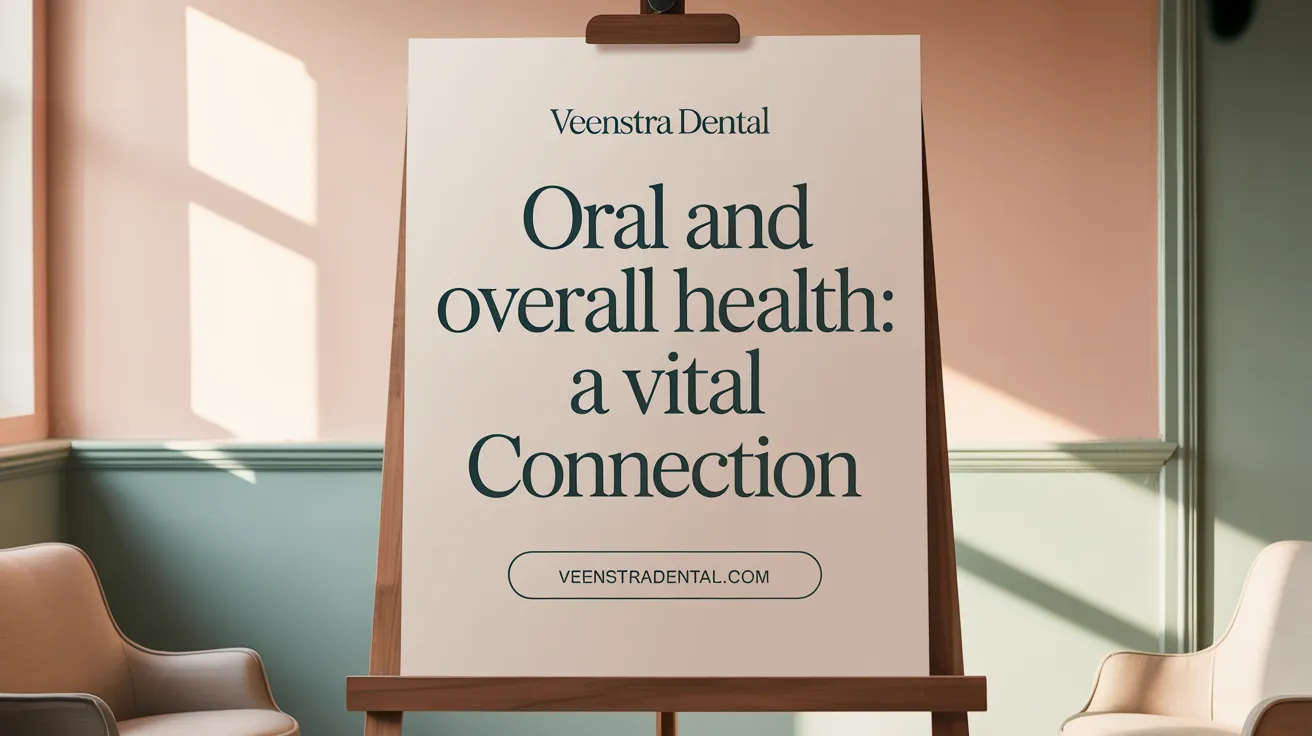Why Preventive Dentistry Matters for Your Smile and Health
Preventive dentistry is the cornerstone of maintaining a healthy smile and overall well-being. By focusing on early detection, routine care, and education, preventive dentistry not only preserves oral health but also contributes to preventing systemic diseases. This article explores the essential role of preventive dental care, highlighting best practices, benefits across different age groups, and the vital connection between oral hygiene and general health.
Understanding Preventive Dentistry and Its Health Benefits

What is preventive dentistry and why is it important for both oral and overall health?
Preventive dentistry encompasses routine practices and treatments designed to maintain healthy teeth and gums before problems arise. This includes regular dental checkups, professional cleanings, fluoride applications, and the use of dental sealants, especially in children. The goal is early detection and prevention of dental issues such as cavities, gum disease, and enamel erosion.
Developing good oral hygiene habits early in life helps ensure a lifetime of healthy teeth. Proper brushing, flossing, and diet contribute to reducing the risk of dental decay and periodontal disease. Preventive care not only preserves the natural teeth but also minimizes invasive procedures, saving time and money.
Access to affordable preventive dental services is vital, especially for underserved populations. Barriers like high costs and lack of insurance can prevent people from receiving regular care, leading to higher rates of preventable oral health problems. Oral health disparities are especially pronounced among children in low-income communities, who experience higher rates of untreated cavities that can affect speech, nutrition, and school performance.
Beyond oral health, maintaining good dental hygiene impacts the overall well-being. Research indicates a strong link between periodontal disease and systemic conditions such as heart disease, diabetes, and respiratory illnesses. Chronic gum infections may contribute to inflammation throughout the body and exacerbate existing health problems. See oral health and overall health connection for more information.
In summary, preventive dentistry is the cornerstone of lifelong oral and overall health. Regular professional care combined with good at-home practices ensures healthier teeth and gums, reducing the risk of serious health complications, and promoting confidence and quality of life as we age.
Best Practices for Effective Oral Hygiene

What are the best practices and educational tips for maintaining good oral hygiene?
Maintaining good oral hygiene involves practicing daily habits such as brushing teeth twice a day with fluoride toothpaste, using proper techniques like gentle, circular motions at a 45-degree angle toward the gums, and flossing once daily to remove plaque between teeth. Incorporating the use of antimicrobial mouth rinses and brushing the tongue can further reduce bacteria and freshen breath.
Regular dental check-ups and professional cleanings every six months are essential for preventing tartar buildup and detecting early signs of dental issues. Additionally, maintaining a healthy diet low in sugar, avoiding tobacco products and limiting alcohol, and managing systemic health conditions like diabetes contribute to overall oral health.
Educating oneself on proper techniques, choosing effective products, and establishing consistent routines are key to long-term oral wellness.
What are the proper techniques for brushing and flossing to maintain optimal oral hygiene?
Proper brushing involves using a soft-bristled toothbrush held at a 45-degree angle to the gums and brushing with short, gentle back-and-forth or circular motions to clean all tooth surfaces, including the tongue, for at least two minutes twice daily. Flossing should be done once a day by wrapping about 18 inches of floss around your fingers, gently sliding it between teeth in a C-shape motion, and moving it up and down beneath the gum line to remove plaque and food particles without damaging the gums. It is important to use toothpaste with fluoride and replace your toothbrush every three months or sooner if bristles fray. Incorporating an antibacterial mouthwash can enhance oral hygiene, and regular dental visits every six months allow for professional cleanings and early detection of issues. Consistent and proper home care practices, along with preventive measures like dental checkups and sealants, are essential for maintaining optimal oral health.
The Role of Preventive Care in Early Disease Detection and Routine Check-ups

How does preventive dental care contribute to early detection of dental diseases and their prevention?
Preventive dental care is essential for catching oral health issues in their early stages, which can significantly reduce treatment complexity and costs. Through regular check-ups, screenings, and professional cleanings, dentists can identify early signs of cavities, gum disease, and oral cancer. These early detections allow for prompt intervention, preventing the progression to more severe conditions that could lead to tooth loss or systemic health problems.
Preventive measures such as fluoride treatments, sealants, and patient education on proper oral hygiene practices further enhance teeth strength and minimize the risk of developing oral issues. This continuous monitoring creates a dental 'home' environment where risks are assessed and managed from an early age, beneficial especially for individuals with higher susceptibility. Overall, early detection through routine care supports overall health and reduces long-term healthcare expenses.
Why are routine dental check-ups and professional cleanings significant in preventive dentistry?
Routine dental check-ups and professional cleanings are the cornerstone of preventive dentistry because they remove plaque and tartar that everyday brushing and flossing might miss. These visits help prevent the formation of cavities and gum disease, maintaining the integrity of the teeth and gums.
During check-ups, dental professionals perform comprehensive exams, including X-rays, to identify hidden issues and early signs of disease. They also provide personalized guidance on maintaining good oral hygiene at home and may apply preventive treatments like fluoride varnishes or sealants, especially for children.
Regular cleanings help reduce systemic health risks, such as cardiovascular disease and diabetes, which are linked to poor oral health. By scheduling these visits every six months, patients safeguard their oral and overall health, avoiding costly and invasive procedures in the future.
Preventive Dentistry Across the Lifespan: Tailored Care for All Ages
 Preventive dental measures are vital at every age, adapting to the unique needs of children and older adults. For children, early intervention is crucial, with practices such as fluoride treatments and dental sealants proving highly effective. Starting from age one, parents should supervise children’s brushing with fluoride toothpaste and promote healthy eating habits, reducing sugary foods that promote cavities. Regular dental visits every six months allow the dentist to detect early issues and apply preventive care like fluoride varnish and sealants, which can prevent up to 80% of cavities.
Preventive dental measures are vital at every age, adapting to the unique needs of children and older adults. For children, early intervention is crucial, with practices such as fluoride treatments and dental sealants proving highly effective. Starting from age one, parents should supervise children’s brushing with fluoride toothpaste and promote healthy eating habits, reducing sugary foods that promote cavities. Regular dental visits every six months allow the dentist to detect early issues and apply preventive care like fluoride varnish and sealants, which can prevent up to 80% of cavities.
In older adults, preventive strategies focus more on managing age-related challenges such as dry mouth, which increases the risk of tooth decay. Using tailored oral hygiene tools like electric toothbrushes or floss holders helps older adults maintain good oral care despite physical limitations. Monitoring for periodontal disease, which is more common with advancing age, and ensuring effective cleaning of dentures are also part of comprehensive prevention.
Overall, lifelong preventive care involves education on proper techniques, the use of fluoride to strengthen enamel, and professional services tailored to age-specific needs. Routine check-ups, combined with good home hygiene, help preserve natural teeth, reduce systemic health risks, and support overall well-being at every stage of life.
Connecting Oral Health to Overall Systemic Health

What is the connection between oral health and systemic health conditions?
There is a strong link between the health of your mouth and the overall condition of your body. Research shows that issues like gum disease and chronic inflammation in the mouth can significantly influence other health problems.
Gum disease, known as periodontal disease, involves bacteria and inflammation that can spread through the bloodstream. This can lead to or worsen conditions such as heart disease, diabetes, and even Alzheimer’s disease. The bacteria and inflammatory molecules from the mouth may enter circulation, promoting plaque buildup in arteries, insulin resistance, or brain inflammation.
Furthermore, systemic conditions like rheumatoid arthritis and obesity are often associated with poor oral health. Conversely, managing oral health can help control or prevent some systemic illnesses.
Viral infections, including herpesviruses and COVID-19, may also impact periodontal health, increasing systemic inflammation. Scientists emphasize that factors such as age, stress, diet, and lifestyle choices—like smoking or poor nutrition—affect both oral and overall health, reinforcing the importance of preventive oral care.
Regular dental visits not only maintain oral hygiene but also serve as an opportunity for early detection of signs of systemic diseases. Dental professionals can identify symptoms like gum bleeding or mouth sores that might indicate underlying health issues.
In conclusion, keeping your mouth healthy is more than just about a bright smile; it’s a vital component of your overall health. Maintaining good oral hygiene, treating gum disease promptly, and collaborating with healthcare providers can help reduce the risk of chronic diseases and enhance your overall well-being.
For more detailed information, searching for "oral health systemic diseases connection periodontal inflammation" can provide extensive research findings and insights.
Long-Term Benefits and the Role of Dental Professionals in Preventive Dentistry
 Preventive dentistry plays a crucial role in ensuring long-term dental health and significant financial savings. It effectively reduces the development and progression of common oral diseases like cavities and gum disease, which, if left untreated, can lead to painful and costly procedures such as root canals, extractions, or surgeries. Regular check-ups, professional cleanings, and fluoride treatments help maintain healthy teeth and gums while decreasing the likelihood of emergencies that require urgent attention (Preventive dentistry, Preventive dental care, Fluoride treatments).
Preventive dentistry plays a crucial role in ensuring long-term dental health and significant financial savings. It effectively reduces the development and progression of common oral diseases like cavities and gum disease, which, if left untreated, can lead to painful and costly procedures such as root canals, extractions, or surgeries. Regular check-ups, professional cleanings, and fluoride treatments help maintain healthy teeth and gums while decreasing the likelihood of emergencies that require urgent attention (Preventive dentistry, Preventive dental care, Fluoride treatments).
By catching problems early, preventive care minimizes the need for extensive and invasive treatments, saving patients money over their lifetime. Data shows that individuals who regularly visit their dentist and follow personalized prevention plans typically incur lower dental treatment costs and experience fewer emergency visits (Importance of Preventive Dentistry, Preventive dental visits and their impact). Additionally, preventive methods have broader health benefits, lowering the risk of systemic conditions like heart disease and diabetes that are intertwined with oral health (Oral health and overall health, Heart disease and diabetes connection).
Dental professionals are pivotal in delivering this preventive care. They perform screenings to identify early signs of dental and related health issues, including oral cancer and systemic indicators (Oral cancer screening benefits, Oral cancer screenings). Through patient education, dentists teach proper brushing, flossing, and dietary habits that support healthy teeth and prevent future problems (Proper oral hygiene, Dental care tips). They also apply protective treatments such as sealants and fluoride varnishes that serve as barriers against decay (Dental Sealants, Fluoride treatments).
Their role extends to advocating for healthy lifestyle choices—like reducing sugary foods, quitting smoking, and managing medical conditions—that directly impact oral health. By promoting these habits and providing tailored advice, dental professionals empower individuals to sustain oral health at home (Preventive Oral Health Care, Healthy lifestyle choices). This ongoing patient-provider relationship enhances confidence and quality of life, enabling people to enjoy a bright smile and overall well-being (Oral health and overall health, Oral health for long-term confidence).
Ultimately, preventive dentistry is an investment in health and finances. It helps maintain natural teeth longer, minimizes treatment complexities, and supports overall health, demonstrating that regular professional care and a commitment to good habits are essential for a lifetime of oral wellness (Benefits of Preventive Dental Care, Cost-effective preventive care).
Maintaining a Healthy Smile for Life
Preventive dentistry serves as the foundation for lifelong oral and overall health, providing strategies to detect and address dental issues early, educate patients on effective home care, and connect oral hygiene to broader systemic well-being. Emphasizing tailored care across different life stages and harnessing the expertise of dental professionals empowers individuals to protect their smiles and enhance quality of life. By integrating preventive habits, regular dental visits, and healthy lifestyle choices, we not only preserve our teeth but also contribute to better health outcomes and financial savings. Investing in preventive dentistry is an investment in a confident, healthy future.
